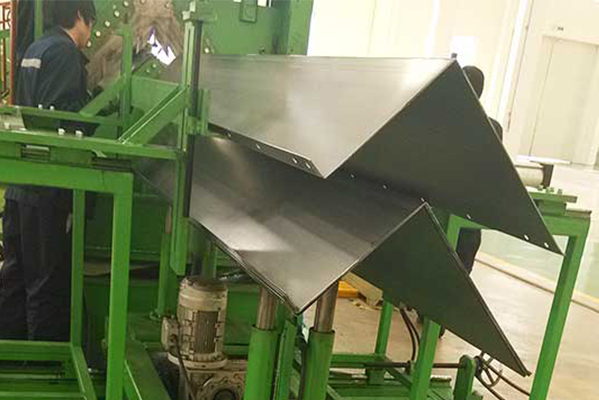Navigation Menu
Contact Us
- Email:
- info@wxavatar.com
- Address:
- Yurong Village, Yuqi Street, Huishan District, Wuxi, China.
Release Date:Jul 08, 2025 Visit:73 Source:Roll Forming Machine Factory
In steel silo manufacturing, roll forming machines play a pivotal role in shaping sheet metal into precise silo panels. While machine technology and configuration are critical, the quality of raw materials—particularly the steel coils used—significantly influences production outcomes. Understanding how material quality affects the roll forming process helps manufacturers optimize both product consistency and operational efficiency.

1. Dimensional Tolerance and Surface Flatness
Roll forming requires materials with consistent thickness and flatness. Variations in steel coil thickness can cause misalignment, resulting in dimensional inaccuracies or tool wear. If the coil surface is not flat or has internal stresses, the material may shift during forming, producing wavy or distorted profiles. This not only affects panel integrity but also requires manual rework, impacting production time and costs.
2. Mechanical Properties of Steel
The tensile strength, yield point, and elongation properties of steel directly affect how it responds to deformation. If the steel is too brittle, it may crack or fracture during high-speed forming. On the other hand, overly soft steel may not hold its shape properly, causing springback after forming. Ensuring that the steel grade meets specified mechanical parameters helps maintain consistent shape and reduces scrap rates.
3. Surface Condition and Coating Compatibility
Surface defects such as rust, oil residue, or scale can interfere with the feeding process and damage forming rolls. In some cases, poor surface condition leads to slippage or uneven movement, which can cause irregularities in panel geometry. Additionally, if the steel is pre-coated (e.g., galvanized or painted), the coating must be durable enough to withstand the roll forming process without cracking or flaking, which affects the final appearance and corrosion resistance of silo panels.
4. Impact on Tooling Life
High-quality material contributes to extended tooling life. Inconsistent or contaminated steel can lead to increased abrasion or localized pressure points on forming rolls, causing premature wear. This results in frequent maintenance, unplanned downtime, and higher operational costs. Using high-quality coils helps reduce machine stress and improves overall equipment lifespan.
5. Production Efficiency and Waste Reduction
When material quality is consistent, the roll forming process runs smoothly with minimal adjustments. This leads to higher throughput, fewer production interruptions, and reduced material waste. Conversely, poor-quality materials often require speed reduction, more operator intervention, and rework, all of which lower output efficiency.

Conclusion
Material quality is a crucial factor that influences every aspect of steel silo roll forming—from the precision of finished products to equipment longevity and production efficiency. Manufacturers aiming for reliable, high-volume output must pay close attention to the sourcing and specification of raw materials. By aligning material quality with machine capabilities, businesses can ensure consistent performance and better overall productivity in steel silo fabrication.